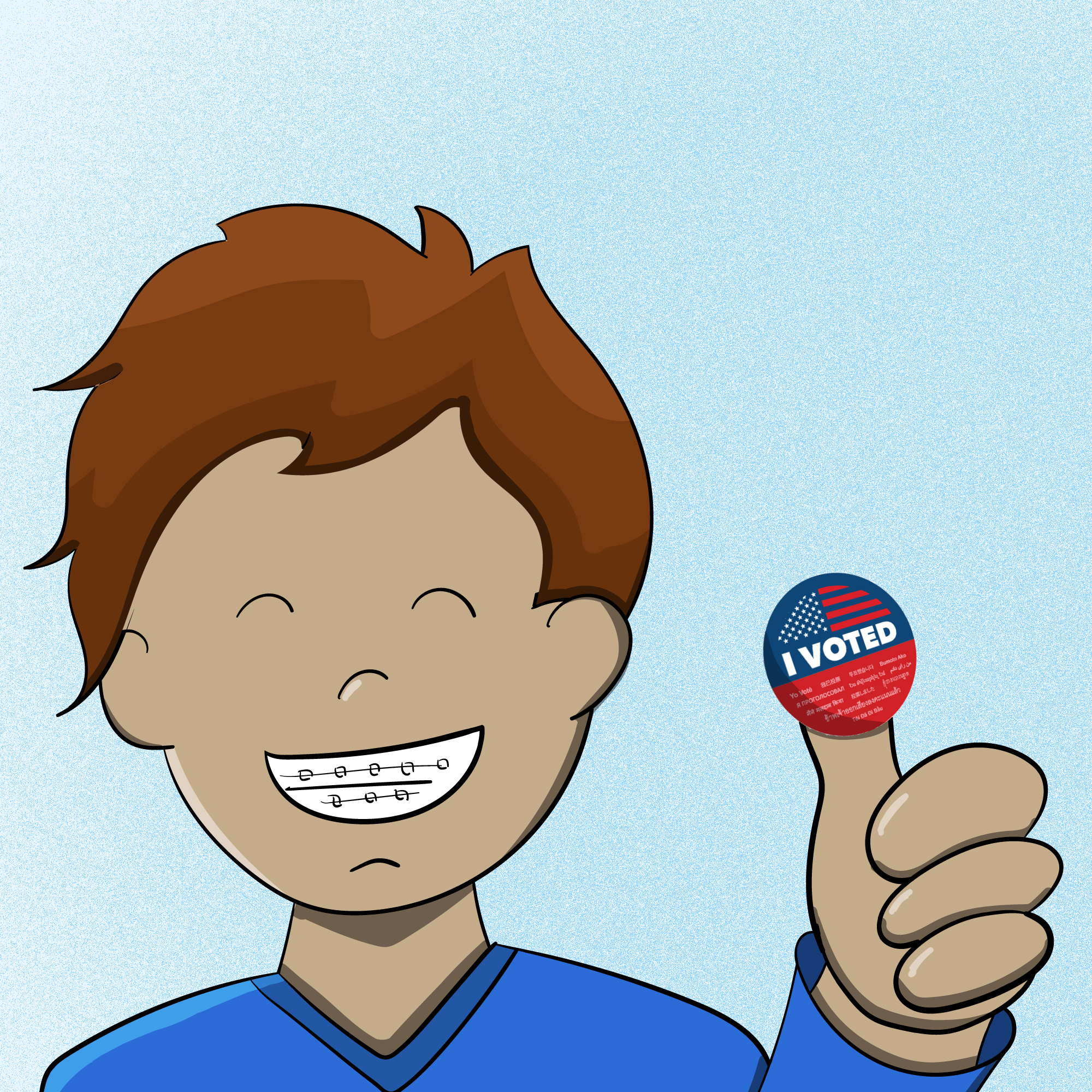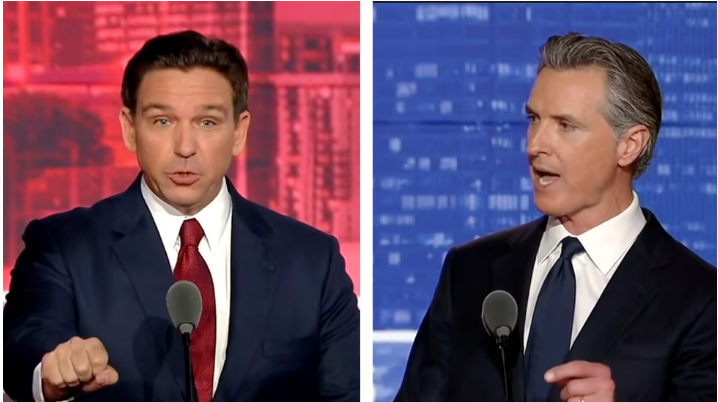Opinion: To Extend the Franchise or Not to Extend the Franchise

Among others they rejected at the ballot box in 2020, California voters defeated Proposition 18 with 56% voting against and 44% voting in favor (though, as of this writing, the election hasn’t yet been certified and these percentages may change). Prop 18 would have approved a constitutional amendment that allowed 17 year olds who were going to be 18 by the next general election to vote in primary and special elections. It should have passed.
Before I advance any arguments in favor of its passage, I’d like to briefly explain exactly what Prop 18 was intended to do. It was designed to enable people who would otherwise be able to participate only in the general election to participate in the full election cycle. It would neither substantially expand the electorate nor enable all 17 year olds to vote.
Opponents of Prop 18 wanted to keep the franchise restricted. Why would anyone want to do that in a democracy? In all fairness, reasonable restrictions on the franchise do exist. We probably shouldn’t give toddlers the vote, not that that idea occupies even in the same universe as the galaxy of plausibility. Yet, as all reasonable restrictions on the franchise should be upheld (not that there are many), all reasonable extensions of the franchise should be granted. Prop 18 was a reasonable extension.
Reasonably, we don’t want people to vote when they are being influenced in a direction that conflicts with their core political values or distorts their ideology. But the notion that near 18 year olds are any more susceptible to influence than people 18 and older is absurd. First off, if a 17 year old is too impressionable to vote in the primary, why would they be any less impressionable by the general election? In all likelihood, they still live with their parents, the most problematic source of influence per the opponents of prop 18. The opposition isn’t wrong in stating that one’s family has a profound influence on one’s politics. Family is actually the single most important factor in political socialization, the process by which individuals acquire their political beliefs. But why is it okay that a family can influence their child’s developing political principles (which they will sincerely hold for their entire lives) and not their young adult’s political actions (insofar as they can influence these actions)? What does undesirable political influence on a child even look like? Is it as subtle as frowning whenever one sees an ad for the party with which one disagrees? (And do we honestly assume that a 17 year old will take that frown to heart before casting a ballot?) Is undesirable political influence as expansive a term as to include all political socialization? That’s undeniably an influence. Shall we bar parents from expressing any political or moral convictions around their children so as to ensure that they are free of “influence” moving into adulthood? And how does parental “influence” guarantee anything? Parents can’t accompany their children into the voting booth. They can’t force their 17 year olds (or adult children, for that matter) to vote a certain way even if they do drag their kids to a polling place on election day.
Schools can’t force anyone to vote any which way either, though opponents of Prop 18 see their influence as significant enough to withhold the franchise from students who’ll be able to vote in the general election anyways. In the Official Voter Information Guide, the opposition wrote that 17 year olds “are a captive audience (italitics theirs) five days a week, with a strong incentive to do whatever teachers and counselors recommend” because they are “dependent on teachers for grades and important recommendation letters vital to their future.” This argument adopts two problematic premises: that teachers and counselors overtly attempt to politically influence their students and that 17 year olds are that easily manipulated. If either of these premises were true, our education system would need major reform regardless of whether or not Prop 18 had passed. Doling out grades and letters of rec on the basis of political agreement constitutes a gross breach of professional ethics. If this was true (and the opposition hasn’t proven it to be), then do they view that as perfectly tolerable because a majority of students to whom it happens can’t vote? How is that ethically sound? Regarding the second premise, if even a quarter of eligible 17 year olds are so poorly educated that they lack the capacity to reason around overt bribery (as the opposition’s formal argument implies), then our public education system has failed. It doesn’t take a genius to realize that you can say you’re voting for X and then use your secret ballot to vote for Y.
For the final nail in the “influence” argument’s coffin, we must remember that freedom from influence is not a prerequisite to voting. If it was, wouldn’t we have to test all voters for influence before allowing them to vote? Who would determine what is “influence” and what is a sincerely held political belief? Would we disenfranchise all of the people whose political lives occur exclusively in hyperpartisan Facebook bubbles or similarly “influencing” spheres of thought?
No. That would be unconstitutional, immoral, and arbitrary.
Next argument: to all who cry immaturity and lack of brain development, I have a few questions. Where in the constitution do we require that “brains must be developed” for the right to vote? How developed must they be? Do we all magically acquire reasoning skills once our brains are fully developed that we cannot access until then?
Logically, it doesn’t track that people who were previously too “undeveloped” to vote should receive the go-ahead six months later. Brain development doesn’t change that much in that amount of time. Besides, despite general consensus that age confers wisdom (or at least minimizes stupidity), the sheer volume of fail videos on the internet tells us that “brain development” (as related to age) isn’t a perfect gauge of reasoning skills. Nor is its completion indicative of the end of one’s political evolution. People can radically (or subtly) change their political ideologies at any point in their lives, as they should. If we aren’t changing at least a little as we grow and gain experience, aren’t we simply stagnant? If our politics remain static in the face of a changing world, does that make us correct or rigid?
Finally, addressing the budget hawks: if one resorts to arguing that we shouldn’t extend the franchise because it will cost too much, then one clearly cannot support one’s position with principled conviction and has thus defaulted to fiscal fearmongering. Yes, enfranchisement costs money. Realistically, in a state that spent over $200 billion in the last fiscal year, the projected costs (several hundreds of thousands to one million dollars every two years, plus a one-time cost in the hundreds of thousands to update voter rolls) are minimal.
We cannot eschew democratizing our society because we are unnecessarily concerned about our expanding electorate’s judgement or because bankrolling it is too expensive. Facilitating voter participation is the most essential service provided by the government.
Through increasing the United States’ dismally low voter turnout, Prop 18 would have facilitated voter participation in its practical application of the American principle of holding our government accountable to as many citizens as is reasonably possible. Low voter turnout equals a failure to uphold a principle central to the fundamental ideologies of all democracies. According to Secretary of State Alex Padilla, slightly more than 38% of all eligible voters turned out for the March 3, 2020 presidential primary in California. That was the second highest primary turnout in 40 years.
As CA Assemblymembers Kevin Mullin and Evan Low (Districts 22 and 28, respectively) wrote for the Official Voter Information Guide, “[e]arly involvement in the electoral process for first-time voters should be a high priority” because “the youth population has the lowest turnout levels out of any age demographic [and] studies…show that voting is habit-forming—once an individual votes in an election, they are more likely to do so again.” Studies do show this, notably a 2003 one from the Yale Institute for Social and Policy Studies which concluded that “voting in one election substantially increases the likelihood of voting in the future.” While this study is somewhat dated, there is no reason that the patterns in voter behavior that it identified would have changed since then. We are, after all, creatures of habit.
And, as Assemblymembers Mullin and Low pointed out, we form most of those habits at a young age. By this logic, we can see the benefits of allowing a small number of soon-to-be 18 year olds to participate in the full election cycle (as 18 states and Washington D.C. do, without issue). It contributes to forming civic habits. It reflects our democractic principles. It constitutes a more than reasonable extension of the franchise—the result of a peculiar union of practical concern for our democracy’s health and patriotic desire to uphold our foundational American beliefs.
Next time this issue comes on the ballot, can we get it right?
Isabelle is a former opinion writer for The Talon. She also writes fiction and will read anything that falls into her lap. Should the fates allow, she hopes to pursue writing from somewhere other than under a bridge.
Kevin is a former Graphics Editor for the Talon. He enjoys graphic design, web developing, cooking, and playing video games.







